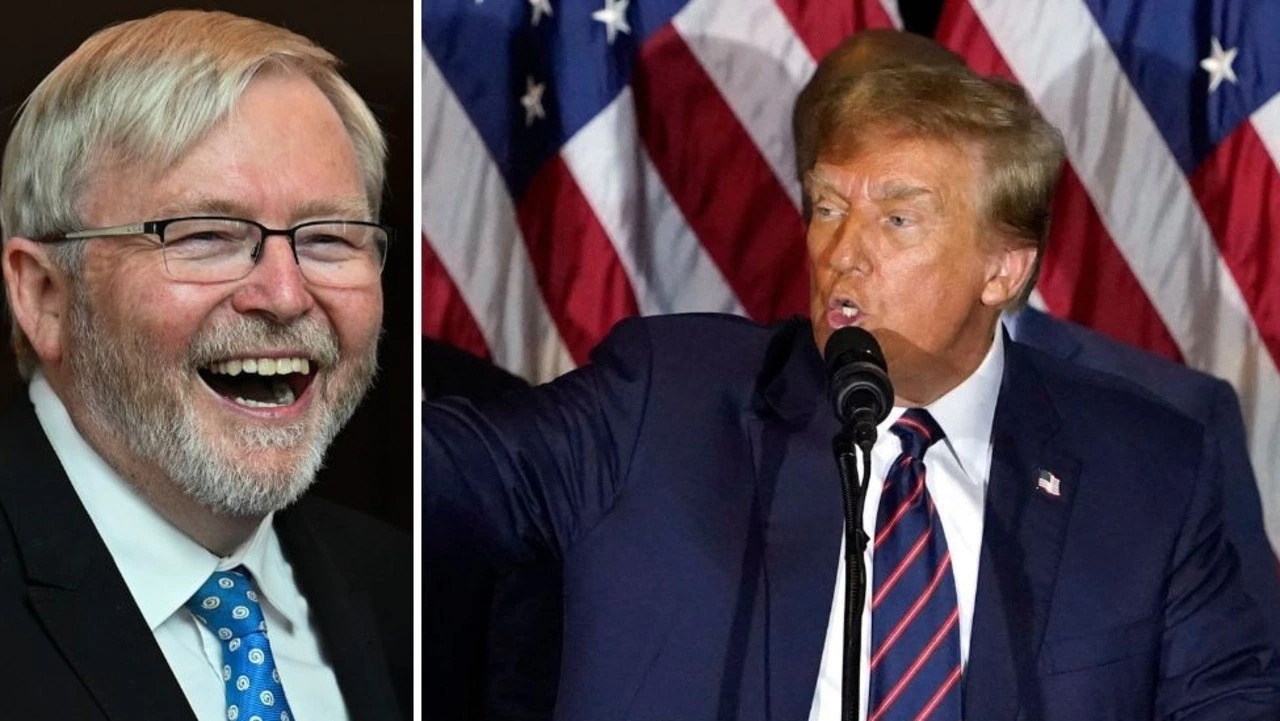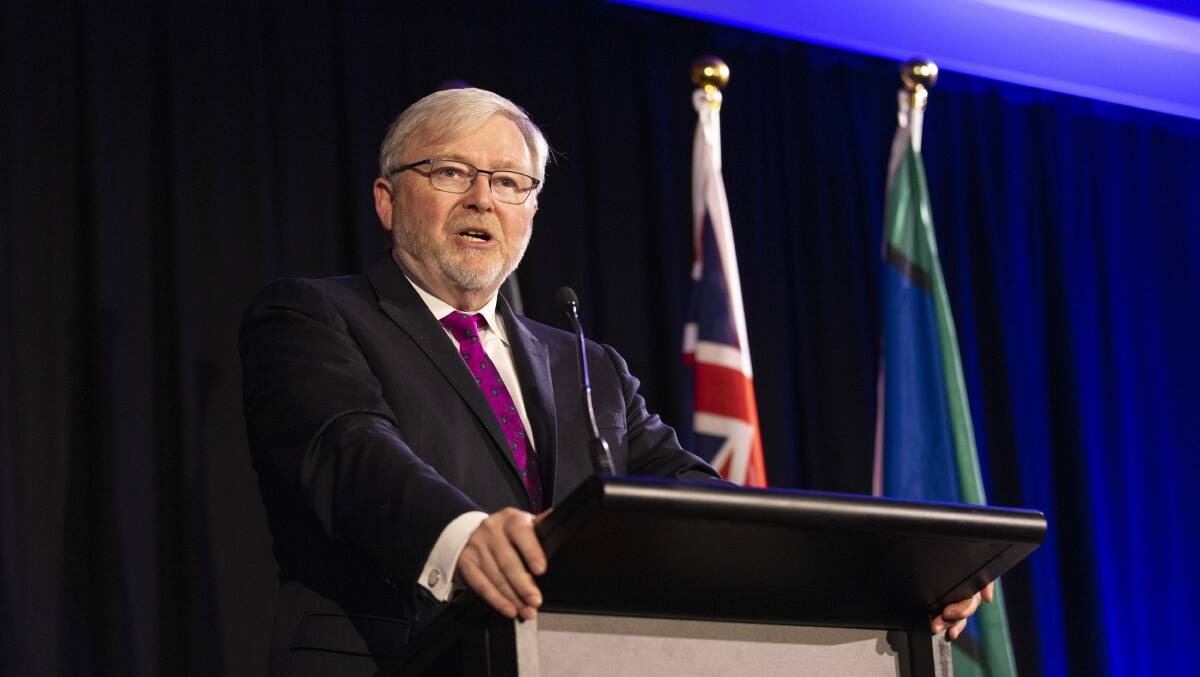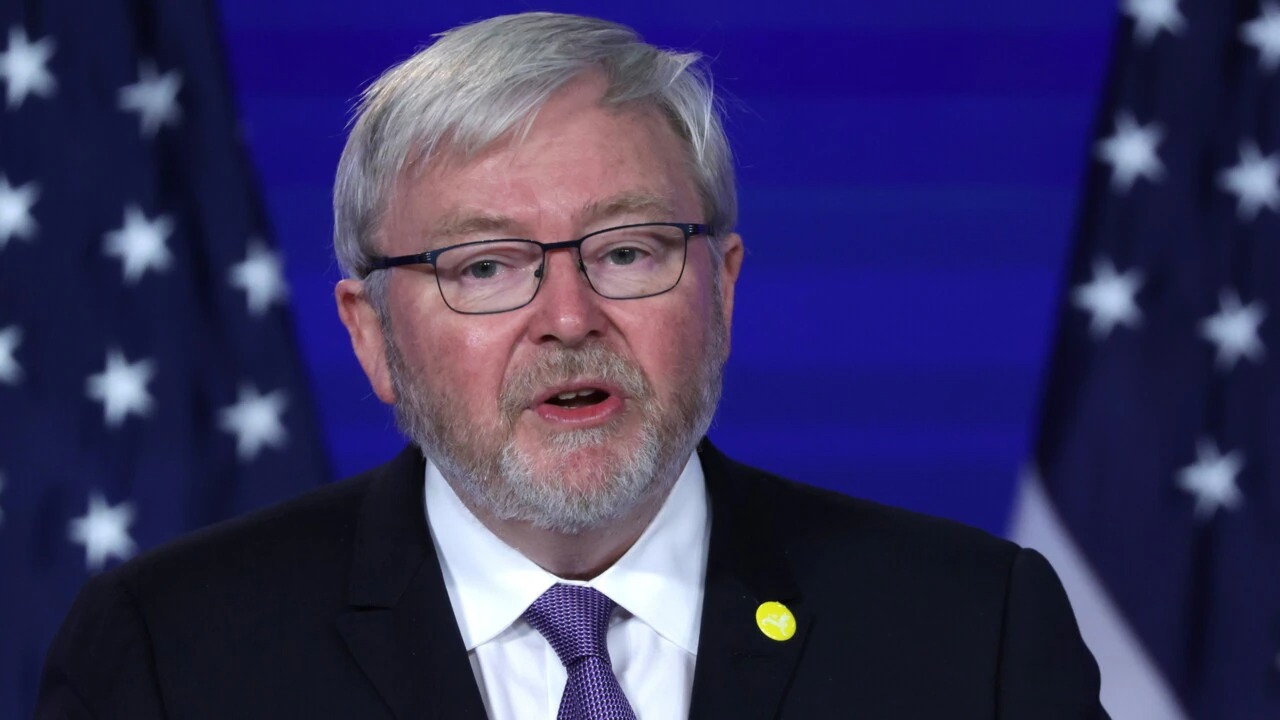In a private conversation with Nigel Farage, former President Donald Trump hinted at his potential decision to dismiss Kevin Rudd, the Australian Ambassador to the United States, should he reclaim his position in the White House.
Trump’s remarks underscored his willingness to take decisive action against individuals he perceives as hostile or critical of his administration.
During the conversation, Trump reportedly referred to Rudd as “nasty,” a term often used by the former president to denigrate individuals who oppose or criticize him.
Rudd, a former Prime Minister of Australia, has been known for his outspoken views on various political matters, including his commentary on Trump’s presidency.

Trump and Australian Ambassador (Credits: The Australian)
Trump’s statement to Farage regarding Rudd’s potential dismissal highlighted the former president’s assertiveness and uncompromising stance on dealing with dissent or opposition.
By indicating that Rudd’s tenure as ambassador could be short-lived if he maintained a hostile attitude towards Trump, the former president signaled his intent to prioritize loyalty and alignment with his administration’s agenda.
The prospect of Rudd’s removal from his diplomatic post reflects Trump’s approach to governance, which is characterized by a strong emphasis on personal loyalty and the exclusion of dissenting voices.
Throughout his tenure as president, Trump was known for his confrontational style and tendency to dismiss or marginalize individuals criticizing him or his policies.
Trump’s remarks to Farage also shed light on the dynamics of diplomatic relations between the United States and Australia. While ambassadors are expected to represent the interests of their respective countries, personal relationships between political leaders can influence diplomatic appointments and decisions.

Australian Ambassador to the United States (Credits: The Canberra Times)
Rudd’s history of criticism towards Trump and the former president’s penchant for loyalty creates a potentially contentious situation that could impact bilateral relations between the United States and Australia.
The prospect of Rudd’s dismissal underscores the complexities and nuances of diplomatic interactions in the context of shifting political landscapes and personal dynamics.
Trump’s statement reflects broader tensions within the international community, where political considerations and personal relationships often influence diplomatic appointments and decisions.
The removal of Rudd could have ramifications beyond the bilateral relationship between the United States and Australia, affecting perceptions of U.S. diplomacy and leadership on the global stage.
Donald Trump’s indication to Nigel Farage that he would consider removing Kevin Rudd from his position as Australian Ambassador to the United States underscores the former president’s assertive approach to governance and his prioritization of loyalty over dissent.
The possible dismissal of Rudd could have far-reaching implications for diplomatic relations between the United States and Australia and broader perceptions of U.S. diplomacy on the international stage.























